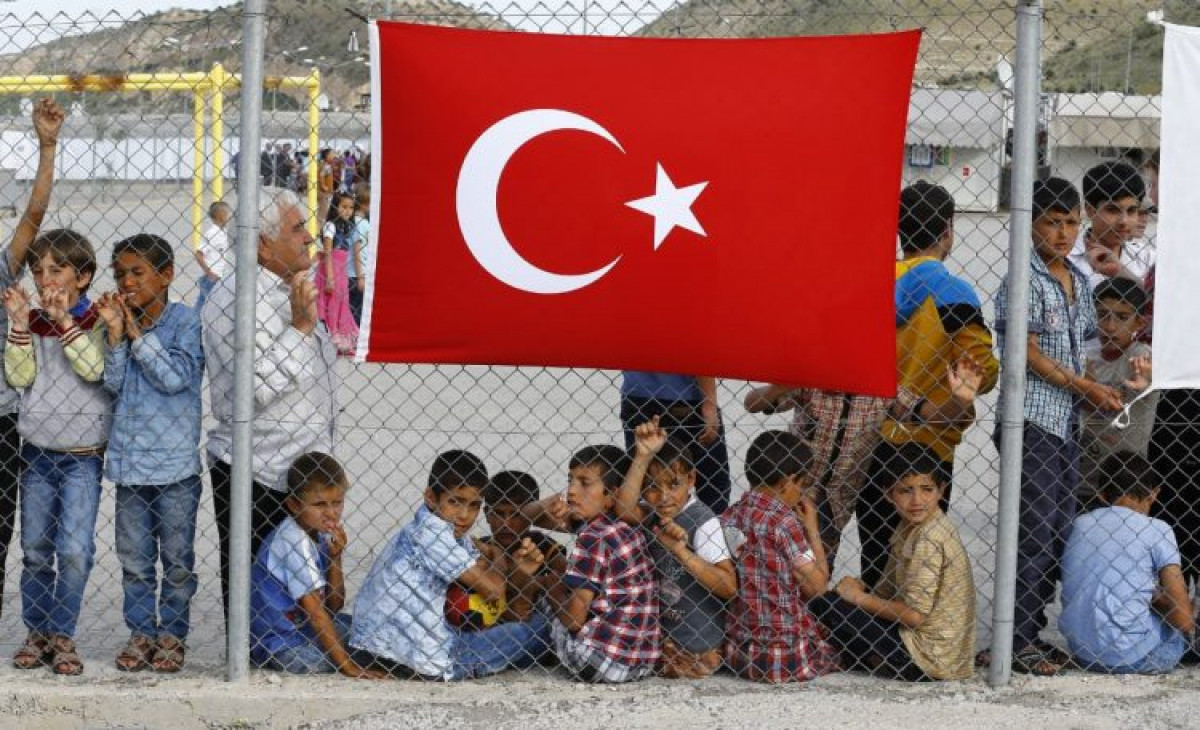 149
149
Floods, earthquakes, droughts, and other natural calamities have fueled migration throughout history, and this pattern has continued in recent years as military occupations, wars, conflicts, and terror attacks have increased in several regions across the globe. Because of its unique geographical location and, most all, its closeness to humanitarian crises in Syria, Iraq, Afghanistan, Pakistan, and Yemen, Turkey has long been a popular destination for migrants seeking a higher standard of living and security. In recent years, Turkey has gained a horrible reputation as a transit point for Middle Eastern asylum seekers hoping to enter Europe. In its interactions with the European Union (EU), Ankara, on the other hand, has attempted to gain economic gains through refugee influx. Turkey has also requested certain concessions from the EU, such as the cancellation of Turkish citizen visas for travel to EU member states in exchange for Syrian refugees remaining within Turkey’s borders and thus preventing them from entering Europe but the EU has so far failed to live up to the promise. Erdogan’s opponents claim that in exchange for a trivial amount of financial incentives from the West, Erdogan has transformed Turkey into one of the world’s most infamous refugee destinations, placing the country in severe financial straits. Indeed, Turkey’s open-door approach toward migrants has boosted worldwide immigration demand, complicating the situation further for Turkey and the EU. Turkish citizens are seeking a way out of the country’s economic crisis, which started four years ago and has only worsened since then, as well as growing unemployment and high inflation rates. Amid all these challenges, foreign immigration has exacerbated Turkey’s already precarious situation, bringing refugee crises to the fore of Turkish national concerns. Turkey’s anxieties about immigration have been heightened by the Syrian refugee crisis, domestic woes, and legislative inaction.
Meanwhile, as a result of current security troubles in Afghanistan, the Afghan refugee crisis has resurfaced. As seen by recent violence against asylum seekers across Turkey, economic pressures have undermined many features of Turkish tolerance for migrants. As a result of recent developments in Afghanistan and an increase in the number of migrants flowing into Turkey, not only has the public disregard for the plight of Afghan refugees grown but so has xenophobia and anti-immigrant sentiment, elevating the issue to one of Turkey’s most alarming socio-political problems. Hence, Turkish officials constructed a massive wall along the Turkish-Iranian border to keep asylum seekers out. Nevertheless, thousands of Afghan refugees have attempted and succeeded in crossing the Turkish border in recent weeks and months. Turkish security has apprehended 904 suspects accused of trafficking refugees and deported nearly 69,000 illegal immigrants, according to Turkish media. Afghans visiting Turkey will be denied entrance until further notice, the International Air Transport Association (IATA) has been instructed in a new decision from Turkish authorities. However, improving the circumstances of asylum seekers in their home countries remains the first step in addressing the current crisis. However, no matter what efforts Turkish authorities undertake, they would be ineffective and worthless until the security situation in Afghanistan improves. As a result, Turkey, along with Afghanistan’s other neighbours, must move promptly to restore Afghan and regional stability through mediation and dialogue among all parties. A similar remedy is required in other countries, such as Syria. Support for Syria in its war against terrorists sponsored by Saudi Arabia would have hastened the end of the Syrian conflict and decreased the number of Syrian refugees in Turkey.
Comment
Post a comment for this article